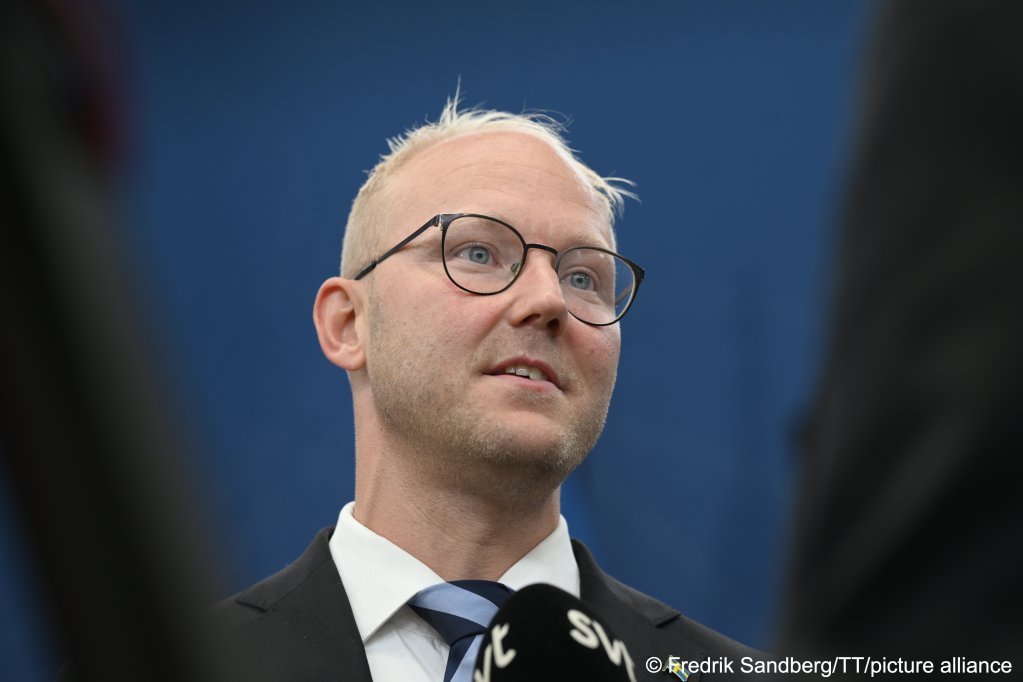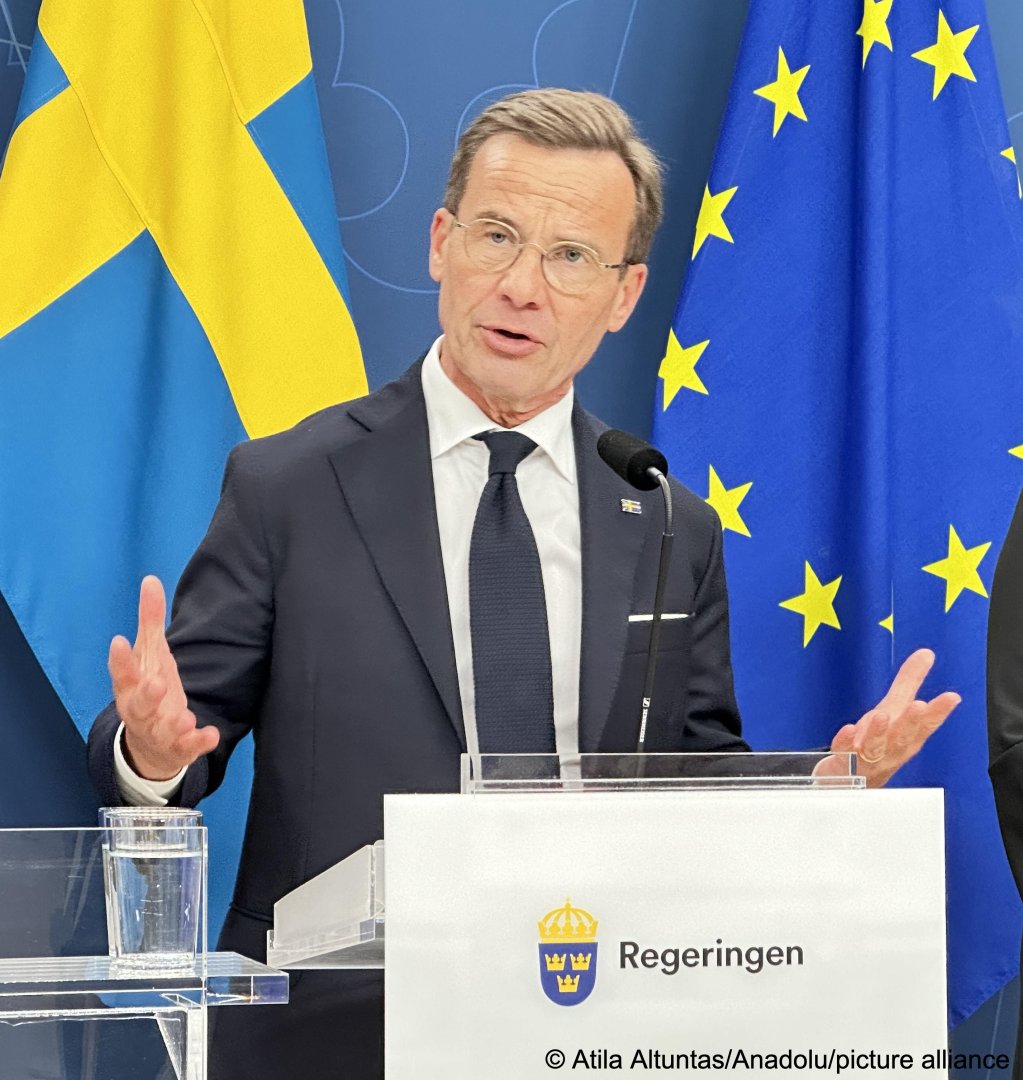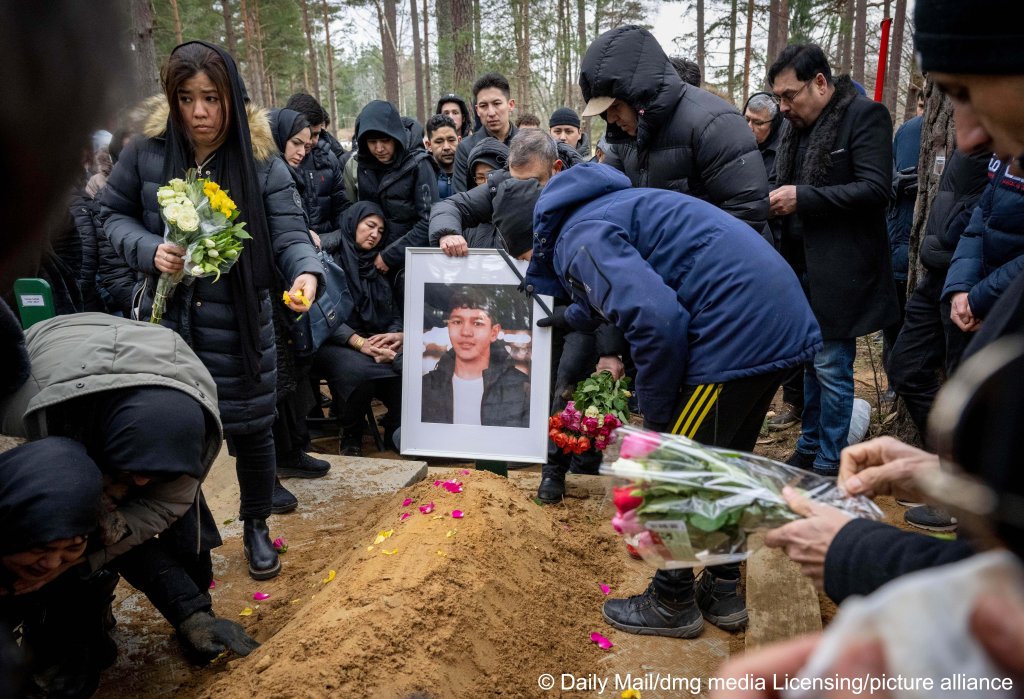The Swedish government is reportedly planning to pay migrants around 30,000 euros to return to their home countries from 2026. The aim is to encourage long-term unemployed or low-income migrants, who rely on state benefits, to accept the financial incentive and leave Sweden.
Sweden’s right-wing coalition announced on Thursday (September 12) that they would be prepared to pay migrants up to around 30,000 euros if they agreed to return to their home countries from 2026, reported various news agencies, including Agence France Presse (AFP).
"We are in the midst of a paradigm shift in our migration policy," new Migration Minister Johan Forssell told reporters on Thursday. The money would be offered to those who agree to voluntarily return to their home country as a fund to help them integrate back home.
According to AFP, Sweden already offers up to 40,000 kronor per family (around 3,500 euros) for voluntary return.
Also read: People leaving Sweden will exceed immigrants in 2024
Only one person took a voluntary return grant last year
Ludwig Aspling from the far-right, anti-migrant Sweden Democrats party, which props up the right-wing coalition, told the press that very few people currently use this voluntary return grant, although it has been in force since 1984. Aspling said that only one person had accepted the money offered by Sweden last year.
Aspling said that if more people were aware of the possibilities, and the amount of money was increased, in line with their announced policy changes, the government was hopeful that a greater number of people would take up the offer.

The politician said the government was hoping that their increased financial offer would appeal to a cohort of several hundred thousand migrants who are long-term unemployed, jobless at the moment, or whose incomes were so low that they needed state benefits to survive in the relatively costly Scandinavian country.
However, last month, a government-appointed inquiry advised the government against increasing the monetary offer, saying that they did not think the uptake would justify the increased costs. The public broadcaster, Swedish Radio, reported the findings of the inquiry on August 14, saying that as a result, "the investigator did not present a proposal how the amount currently on offer to those undertaking voluntary return could be increased."
The broadcaster also reported in March that 463 people took "re-establishment support" in the form of cash to leave the country in 2023, adding that those numbers had almost doubled compared to the previous year, 2022.
Also read: Swedish emigrants to outnumber immigrants for first time in 50 years
Financial incentives to return
Sweden is not the first country to offer financial incentives to migrants who agree to voluntary return programs. However, the sums offered are generally much lower and are seen as a setting up fee, to ensure the person returning can survive and flourish back in their home country, so they are not tempted to undertake further migration journeys in the future.
Denmark reportedly offers to pay migrants returning home voluntarily a grant of about 13,500 euros, while Norway offers around 1,200 euros, France around 2,500 euros, and Germany around 1,800 euros.
Since the 1990s, Sweden has taken in large numbers of migrants and has a generous social welfare system. However, in recent years, the country has reported more and more problems with integration and social and economic marginalization of migrants, and the tide has turned in some political quarters against allowing so many people into the country.
Getting tough on migration
The current government came to power in 2022 and is led by Prime Minister Ulf Kristersson from the Moderate Party. The coalition also includes the Christian Democrats, and the Liberals, with support from the Sweden Democrats which they needed to survive. Getting tough on migration was one of the stipulations issued by the Sweden Democrats in return for government support.
In 2015, Sweden took in 160,000 migrants. Although that doesn’t seem like a great number in relation to the more than a million that arrived around the same time over two years in Germany, in relation to the relatively small Swedish population, the intake was the highest per capita in the EU that year.

Sweden has reported much higher unemployment figures among its foreign-born population, which has, says those who are anti-immigrant, placed strain on the country’s social security system.
Since 2015, both left and right-wing governments have gradually hardened their policies around migration, including issuing only temporary residence permits to asylum seekers, tightening family reunification requirements, and hiking income requirements for work visas for non-EU citizens, reports AFP.
Also read: Tougher rules for family reunification as part of pact with right
Links between crime and migration?
In recent years, Sweden has also seen a rise in gang crime, knife and gun violence, and many of these have also been attributed to immigrant gangs, in areas where reportedly the Swedish police are too scared to enter and have little control over.
According to Britain’s right-wing Daily Express newspaper, Sweden currently boasts the highest number of gun-related deaths per capita of population in the whole of the EU. The reported violence has led some, including a Swedish academic at Uppsala University to warn that Sweden might be on the "brink of a civil war," reported the Daily Express. Göran Adamson, a Senior Lecturer in Sociology at Uppsala University, told the newspaper in May that he believed that issues like crime and migration are causing schisms in Swedish society.

The Swedish government has conducted several studies regarding claims that crime has increased with migration. The latest study was published in 2021 by the government. According to a Swedish government press release, last updated in autumn 2023, "people born abroad are 2.5 times as likely to be registered as a crime suspect as people born in Sweden to two native-born parents."
Marginalization and poverty might help explain the statistics
However, a key word in this study is "suspected" of crime, rather than convicted. The study goes on to point out that, "in relation to this latter group, therefore, the relative risk of being suspected of crime for people born abroad is 2.5. For those born in Sweden to two non-native parents, the relative risk is 3.2, which means people in this group are slightly more than three times as likely to be registered as a suspected offender as those born in Sweden to two native-born parents."
The study also points out that "the magnitude of this excess risk decreases when differences in age, gender and living conditions are taken into account, from 2.5 to 1.8 and 3.2 to 1.7 respectively."
According to another literature review of studies on crime and migration across the Nordic countries between 2015 and 2019, the study concluded, states the government that "people with foreign background are somewhat overrepresented, and the overrepresentation varies between countries of origin and type of crime."
However, they went on to underline that, according to the according to the Swedish National Council for Crime Prevention, (Brå) "factors that lead to segregation – for example low level of education and lack of employment or other occupation – also seem to contribute to a higher level of crime amongst people with foreign background. Factors such as war traumas, mental illness and the level of crime, conflict and economic development in the country of origin might also be factors that contribute to explain some of the differences."
Also read: Sweden, refugees, burning books and a complex security situation
Stricter rules for residency for young people
At the end of May, the Swedish migration agency announced that it was also introducing stricter rules for residency for young people. The new rules will kick in on October 1 this year, stated a press release from the agency in May.
The tougher rules include applicants proving that they live an "orderly life." That means, person applying for Swedish citizenship between the ages of 15 and 21 will need to prove that they are not suspected of serious crimes, have not been convicted of crimes or repeatedly engaged in criminal activities, are not a threat to Sweden’s national security or public safety, and are not associated with groups or organizations that commit abuse against other people.
On September 9, migration minister Johan Forssell posted on X that at halfway through the legislature, the government was concentrating on "tightening" things up in terms of policy, with particular emphasis on combatting gangs and criminals in Sweden.
"The strong state finances must be used for the biggest investments in research and infrastructure in modern times. At the same time, the fight against the gangs continues - now with a focus on the criminal economy."
With AFP and Anadolu Agency
